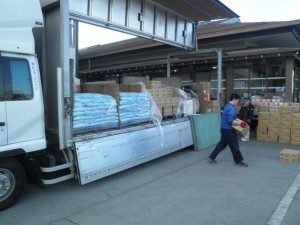It is hard for me to write about the six month anniversary of the Japan Earthquake and Tsunami without naming that it actually falls on the same day as the 10th anniversary of the 9/11 World Trade Center attacks. I spent the past week feeling a strange tension as my personal life was flooded with conversations and media portrayals of the past ten years here at home and my professional life called for a reflection on the past six months halfway round the world. Two pieces that stuck out to me during this time were the Church World Service’s Japan Situation Report and Rev. Kevin Massey’s Disaster Response blog “Field Report: New Jersey and New York City“. I figured the best way to be honest to myself and get the message across was to talk about how these two documents have fit together in my head.
The CWS Situation Report gives a good update on the continuing work going on in Japan and the fact that the need will continue to be there into the foreseeable future. The major areas of work are around providing shelter, food, pest control, psycho trauma care and debris/home clean up. To date the ELCA has committed $975,000 to this appeal and continues to be present with and through our companions and partners. This report reminded me of the church’s commitment and calling to be present with people in their moments of need and how the gifts of our members can have such a powerful impact in places few of us have heard of, let alone been to.
In Rev. Massey’s (Director for Lutheran Disaster Response) post, I heard of how disaster affects us, not just in the destruction it brings physically but for the gap it can leave spiritually and emotionally. Even ten years later, the disaster and tragedy of 9/11 still casts a shadow across many hearts. Yet, through our communal rememberance of the tragedy there is the chance for solidarity and unity, for pain to be released.
And through both documents I saw how the church is present in disaster. Whether it happened at home or halfway round the world. Whether it happened yesterday, six months ago or ten years ago. The church is present to help in the naming of Christ present in tragedy through word and deed. So as we look back on the past six months of work in Japan, and the past ten years here in the United States, let us thank God for sustaining strength, continued resolve and the space for healing.


